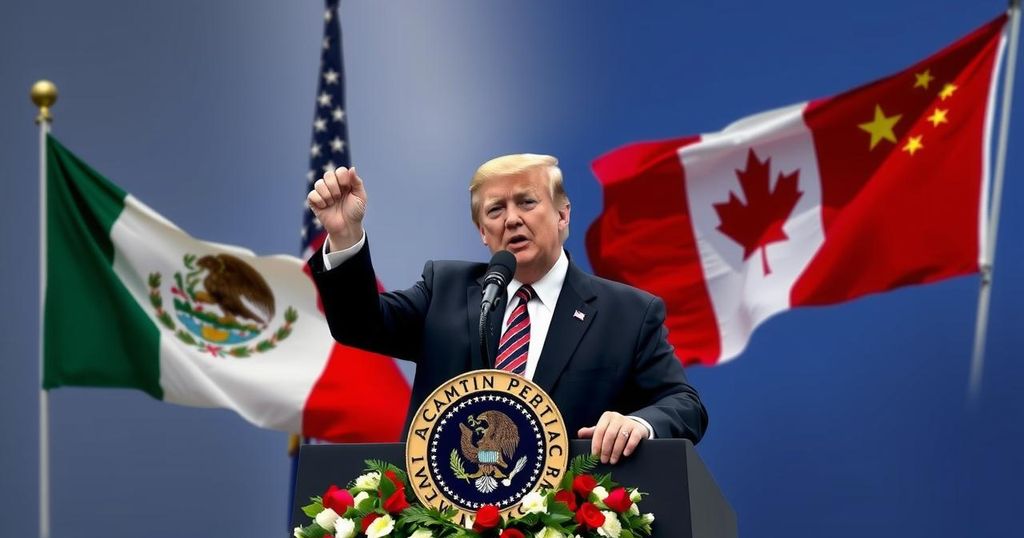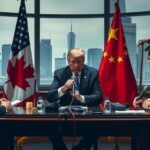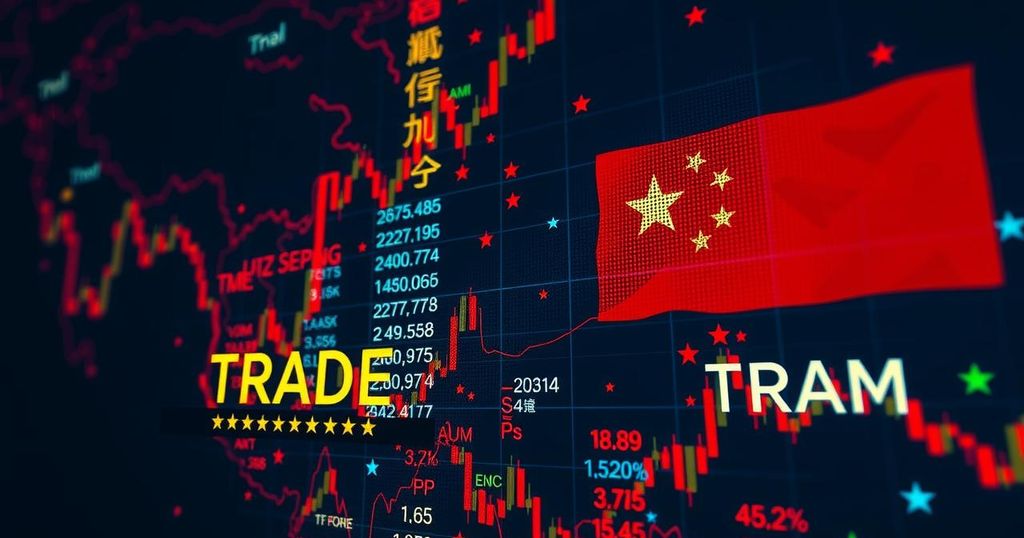Trump’s Proposed Tariffs: A Strategic Move Against Mexico, Canada, and China
President-elect Trump has proposed imposing significant tariffs on Mexico, Canada, and China on his first day in office, seeking to address issues related to illegal immigration and drug trafficking. The tariffs could raise consumer prices and complicate trade relations with these key partners, especially given the existing USMCA agreement.
President-elect Donald Trump has signaled plans to impose significant tariffs on Mexico, Canada, and China starting from his first day in office. His proposed measures include a 25% tariff on all products imported from Mexico and Canada, in addition to a 10% tariff on goods from China. Trump argues this strategy aims to combat illegal immigration and drug trafficking, particularly citing fentanyl. The potential tariffs, if enacted, could lead to increased consumer prices across a broad range of goods, including fuel and automobiles. His statements were originally posted on his Truth Social platform, where he expressed frustration over immigration and drug-related issues, despite evidence indicating a decline in border apprehensions.
While apprehensions at the southern border remain low, rising arrests have been documented at the Canadian border, with Indian migrants making up a significant portion of those apprehended. Furthermore, the significant rise in fentanyl seizures underscores the ongoing concerns about drug smuggling. Trump’s plan links these complex issues to trade, invoking tariffs as a means of leverage.
These proposed tariffs raise critical questions about their impact on U.S. relations with its northern and southern neighbors, particularly in light of the existing USMCA trade agreement, which could face uncertainty if Trump pursues this course. The Canadian dollar’s swift depreciation post-announcement reflects investor concerns about potential economic ramifications, with warnings from Canadian officials about the necessity of maintaining both security and economic cooperation with the U.S.
The context surrounding President-elect Trump’s tariff threats can be traced back to his overarching campaign themes that prioritized stringent measures against illegal immigration and drug trafficking. Trade relations among the U.S., Mexico, Canada, and China play an integral role in the economic health of the United States as well as its international diplomacy. The anticipated tariffs represent a continuation of Trump’s previous trade policies aimed at renegotiating established agreements such as NAFTA and the implications of these tariffs on bilateral relations are substantial. Historically, similar policies have elicited retaliatory actions from affected countries, raising concerns about an escalating trade war that could adversely affect American consumers.
In conclusion, President-elect Trump’s threats to impose new tariffs as part of his administration’s agenda highlight the delicate balance between trade policy, immigration control, and drug trafficking challenges. The proposed measures could significantly affect the U.S. economy while simultaneously straining relations with key trading partners, leading to a potential alteration in existing trade agreements. The looming uncertainty surrounding these tariffs necessitates careful consideration of their broader implications.
Original Source: www.newspressnow.com








Post Comment